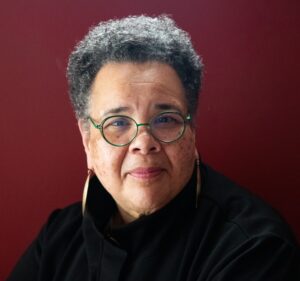
Agency: Onward Through the Fog!
The task is impossible, yet ours to accomplish. Our students need us to shape our classrooms for a future we cannot foresee or anticipate. In the courses we design, our students need us to hone their voices, imaginations, and problem-solving abilities for a future that is unmappable yet will require their navigational skills for survival of our families, neighborhoods, and nation. The world powers are shifting before our very eyes, and we must teach to prepare our students for this change.
A call for agency is not a call to act out or act up. Agency has more to do with activating the responsibilities and powers which came with faculty hire when we joined an institution with a commitment to mission. We are bound to the promise of educating – come what may.
Typically, the mission of the school has to do with educating for the moment at hand, and with an eye toward the coming future. Faculty, as stewards of knowledge production, have a professional obligation to adapt, pivot, adjust so that education remains future minded – especially in a moment when the future will not look like the past. We are teaching in a moment when we do not have the luxury of thinking that adhering to established traditions will save schools or educate our people into the next fifty years. While we need those with agency to guide us into the new possibilities, the new approaches, the new sensibilities of education, too many school contexts have punished, jettisoned, or abandoned those with agency.
Agency, or lack thereof, is one of the perennial themes discussed in gatherings of early career colleagues at Wabash Center. Colleagues invariably bring to the discussion their fears, misinformation, unarticulated needs, desires, and hopes. They disclose their disappointment and misgivings about institutional citizenship and the lack of ownership they feel for their own professional duties. When asked by the workshop leaders why they feel so disregarded, they say:
- “I assumed that my needs are just like everyone else’s. They (the administration) should know what I need without me asking.”
- “I don’t ask questions in meetings because I do not want to appear stupid.”
- “I don’t like to ask too many questions because I am new.”
- “I really think someone else knows the curriculum better than I do, so I leave it up to the senior scholars.”
- “I have decided to wait until I am – [tenured, promoted, finished with my book] – THEN I will start speaking up about the workings of the school.”
- “I do not want to ask for a faculty handbook because they might think I am causing trouble.”
- “When colleagues ask me to lunch, I say no. I don’t want the department head to think I am colluding with them.”
- “I say “yes” to every extra assignment. I don’t want colleagues to think I am unavailable or lazy.”
- “I don’t make use of the teaching center. I don’t want my colleagues to think I do not know how to teach.”
- “My only mentor is my dissertation advisor who retired three years ago. I do not want colleagues to think I need advice.”
- “I am going to pitch my idea for a new class after Dr. XXXX retires in two years.”
- “I do not vote in faculty meetings because I do not want colleagues to think I take sides.”
- “I wanted to say something, but I did not know how the colleagues would react.”
These are the kinds of responses given by the fearful and the distracted. The lack of agency signals that there is a denial of authority, an abdication of responsibility, a giving away of power, a squandering of opportunity. As some of the most educated people on the planet we are asking permission to do the jobs for which we are depended upon. My fear is that now, in this crisis, we are incapable of shaping our classrooms for the unknown future — we might be, as my father would say, “a day late and a dollar short.” As educators, we are in a reckoning moment when we must take agency if our craft of teaching is to be relevant and worthwhile.
Moving forward, we know that higher education will need to imagine, invigorate, and conjure up new schools as well as establish new approaches for entire systems of education. Professional timidity will sabotage these efforts. Faculty colleagues who have no agency, no forthrightness, no vision for the new, and who refuse or are unable to take authority for the job will only serve to further compromise the system and foreclose the freedom and creativity needed now and in the future. Leadership that is flexible, resilient, imaginative, and willing to convene open dialogue and struggle with challenging questions is what is needed as we press onward through the fog!
Reflection Questions
- What are the obstacles to your own agency?
- How has your agency grown with the seasons of your career?
- What is at stake should your leadership go unvoiced?
- Who are your conversation partners for discussing this moment of crisis and the ways it is affecting teaching?
- Where are the open dialogues that address the new possibilities for the coming future?
Leave a Reply